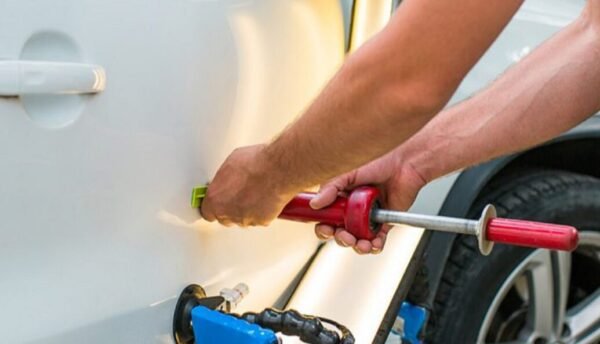A unique kind of panic sets in when your car starts making strange noises or refuses to shift smoothly. For many car owners, the vehicle is more than just transportation—it’s a lifeline for work, family, and everyday errands. But when the engine coughs or the transmission stutters, the uncertainty can be overwhelming. Knowing where to turn for help makes all the difference in restoring your car—and your peace of mind.
- Recognizing the Hidden Signs of Transmission Trouble
One of the most common car complaints that goes unchecked for too long is a failing transmission. While a grinding noise or gear slippage may seem minor at first, these issues typically indicate more serious problems, such as fluid leaks, worn-out gears, or electronic sensor failure.
An Auto Mechanic Virginia Beach VA professional will use advanced diagnostic tools, ranging from scan tools and pressure testers, to torque converter stall speed testers, and use transmission test benches, not just trial and error. They’ll also know how to distinguish between mechanical and electronic failures without upselling unnecessary replacements. Transparency in inspection is a non-negotiable sign of a good repair shop.
- Engine Hesitation: What It Means and Why You Shouldn’t Wait
Does your car jerk, stall, or lose power when accelerating? Engine hesitation may seem like a simple hiccup. Still, it could stem from clogged fuel injectors, dirty air filters, or faulty spark plugs—each of which is capable of cascading into more severe engine damage if left unattended.
A dependable technician will perform a thorough scan of the air-fuel delivery system and explain what is causing the delay in performance. However, look for a reliable garage like London Bridge Auto and Transmission Repair shop with specialized knowledge and experience in diagnosing and repairing engine problems. They’ll also retest the vehicle after repairs to ensure smooth operation, which shows pride in their work.
- The Power of Preventive Maintenance for Transmissions and Engines
Prevention costs less than repair. Timely fluid changes, filter replacements, and belt inspections help extend the life of both your transmission and engine. Unfortunately, many car owners ignore these services until it’s too late, often because their garage didn’t advise them.
Common Preventive Measures:
- Change transmission fluid every 50,000–60,000 miles (or as recommended).
- Replace engine oil every 3,000–7,500 miles, depending on oil type.
- Clean or replace fuel injectors regularly.
- Monitor for overheating and check coolant levels.
- Listen for strange sounds, especially under load or during gear changes.
A great garage won’t just fix problems—they’ll educate you. Look for service centers that send maintenance reminders, offer itemized inspection sheets, and show you worn parts before disposal. That’s how you know they’re invested in your car’s long-term health, not just today’s invoice.
By sticking to these preventive practices, you reduce breakdown risk and keep repair costs predictable. It’s also a proactive way to protect your investment and maintain resale value.
- When Rebuilding Is Better Than Replacing
Many car owners may fear the cost of a completely new engine or transmission when a rebuild could be a more affordable and equally reliable option. Rebuilding involves replacing worn or damaged components while keeping what still works, making it a budget-friendly solution in many cases.
However, for the best outcomes, choose a certified specialist in rebuilds, not just part-swapping. They should offer a clear rebuild plan with cost breakdowns and warranty coverage. The presence of an in-house machine shop is a bonus—it demonstrates that they’re skilled enough to refurbish parts professionally rather than outsourcing the work.
- Transmission Overheating: Silent Damage That Spreads Quickly
Transmission overheating is one of the most overlooked threats to your vehicle’s health. Many drivers don’t realize that excessive heat doesn’t just make your car uncomfortable—it can quietly destroy your transmission from the inside out. When a fluid overheats, it loses its ability to lubricate, resulting in friction, wear, and eventual failure.
Signs of Transmission Overheating include the following:
- A burning smell while driving
- Transmission warning lights on the dashboard
- Hesitation or slipping while shifting gears
- Fluid that’s dark brown instead of bright red
- Unusual whining or grinding noises
A competent technician will check beyond just fluid levels—they’ll inspect the entire cooling pathway, including radiator integration. They won’t shy away from recommending custom cooling solutions, such as auxiliary coolers when needed. Look for professionals who specialize in drivetrain systems and understand how climate, load, and terrain affect transmission wear.
- Understand The Risk of Ignoring Small Engine and Transmission Issues
Sometimes, car owners put off addressing minor concerns due to cost or inconvenience. However, a delayed repair can quickly evolve into a system-wide failure, turning a $200 fix into a $2,000 replacement. Transmission overheating, for example, can damage internal components; unresolved misfires can cause the engine block to crack.
A responsible garage will help prioritize repairs instead of pushing you into urgent full-service packages. They’ll advise on what needs fixing now versus what can wait and help structure the work in phases if needed. It’s this honest approach that builds trust and prevents bigger disasters later.
In conclusion, your vehicle’s engine and transmission are its heart and nervous system—when either falters, the entire car suffers. The smart move isn’t just finding a fix but finding the right people to fix it. Entrusting your vehicle to a certified garage like London Bridge Auto and Transmission Repair, equipped with trained professionals, proper diagnostic tools, and customer-first practices, ensures that every issue finds a perfect resolution the first time. Whether it’s a major rebuild or minor tune-up, choosing skilled hands makes all the difference in restoring your car and protecting your road ahead.



